

The Galápagos Affair:
Satan Came to Eden
Dan Geller & Dayna Goldfine
This page is based on the press release describing the film, with some edits made for online presentation. Download the Press Kit in Adobe Acrobat (PDF) format.
Synopsis
Darwin meets Hitchcock in this murder-mystery documentary. The Galápagos Affair: Satan Came to Eden is a gripping tale of idealistic dreams gone awry, set in the brutal yet alluring landscape of the Galápagos Islands. Featuring the voice performances of international stars Cate Blanchett, Diane Kruger, Connie Nielsen, Sebastian Koch, Thomas Kretschmann, Gustaf Skarsgård and Josh Radnor, the film skillfully interweaves an unsolved 1930s murder mystery with stories of present day Galápagos pioneers (a handful of Europeans, Americans and Ecuadoreans who settled idiosyncratically in the islands between the 1930s and 1960s). As such, it is a parable of a search for paradise—about what happens when a handful of individualists settle on the same small island seeking their own distinct and sometimes clashing notions of Eden.
The Galápagos Affair features newly-discovered vintage “home movie” footage of the protagonists in their Galápagos surroundings and other extraordinary archival material not seen in over 70 years. Stunning present-day HD footage evokes the unique atmosphere and natural beauty of the Galápagos Islands while portraying the inner lives of those who chose to make these islands their home. By turns macabre, humorous, inspiring and profound, The Galápagos Affair is a murder mystery but also an adventure story of the sort that makes Robinson Crusoe and The Swiss Family Robinson so timeless.
In 1929, Berlin physician Friedrich Ritter (Thomas Kretschmann) left Germany with his lover Dore Strauch (Cate Blanchett) to make a life on the uninhabited island of Floreana. He envisioned a paradise of solitude in which he would write great philosophical tracts while carving out a rudimentary existence based on Nietzsche's doctrine of the Superman. What Ritter and Strauch did not count on was being discovered by the international press, who rapidly trumpeted their exploits as “The Adam and Eve of Galápagos.”
With this fame others flocked to the shores of Floreana, each seeking to realize his or her own personal ambitions. The first “intruders” on Ritter's solitude were the Wittmer family: Heinz (Sebastian Koch), his pregnant wife Margret (Diane Kruger) and teenage son Harry, who left Cologne, Germany in 1931 determined to become “The Swiss Family Robinson of Galápagos.” Then, shortly thereafter, the Austrian Baroness Eloise von Wagner Bosquet (Connie Nielsen) arrived, toting a revolver, a pair of handsome, much younger lovers and a grandiose plan to build a luxury hotel catering to billionaire yachtsmen. These three groups, each with their own personal mythologies and visions of what paradise might be, quickly discovered that the island of Floreana would never be large enough for peaceful cohabitation. The Galápagos Affair then becomes the tale of disparate dreams colliding in a harsh environment barely capable of supporting human life: it is a portrait of mysterious disappearances and likely murder for some, of survival and triumph for others. As the story unspools, Josh Radnor voices the observing eye of John Garth, a young American scientist, and Gustaf Skarsgård is the Swedish journalist Rolf Blomberg, who comes to investigate the island's disappearances.
In addition to the richness of this real-life mystery (a mystery that rivals what Alfred Hitchcock or Agatha Christie might have dreamt up), The Galápagos Affair also skillfully interweaves the stories of a handful of present-day Galápagos pioneers (Europeans, Americans and Ecuadoreans who settled idiosyncratically on the islands between the 1930s and 1960s). Interviews and vérité scenes with these modern “characters” touch upon the myriad reasons why original settlers left civilization behind to take up permanent residency in Galápagos.
Through a mixture of contemporary footage and archival stills we meet: Jacqueline De Roy (who, with her husband and young daughter, left Belgium in search of a way out of the post-war rut); Teppy Angermeyer (whose father, Gus, fled Hitler's Germany with his three brothers in pursuit of paradise made of fresh air, love and sunshine); Carmen Kubler (whose family migrated to Galápagos in 1934 after her father “smelled war” brewing in Europe); and Steve Divine (whose hardy, individualist parents established a farm in the Galápagos highlands).
The Galápagos Affair features newly-discovered vintage “home movie” footage of the protagonists in their Galápagos surroundings and other extraordinary archival material not seen in over 70 years. Stunning present-day HD footage evokes the unique atmosphere and natural beauty of the Galápagos Islands while portraying the inner lives of those who chose to make these islands their home.
By turns macabre, humorous, inspiring and profound, The Galápagos Affair is a murder mystery but also an adventure story of the sort that make Robinson Crusoe and The Swiss Family Robinson so timeless.
Film Makers' Statement & Production Notes
In the summer of 1998, a friend hired us as cinematographer and sound recordist for a National Science Foundation-funded project in the Galápagos Islands. Little did we know that our two-week, shoot-for-hire, would result in a deep passion for a place and for a story, a passion that would take us on a 15-year journey resulting in The Galápagos Affair: Satan Came to Eden.
At the time, we had no idea that people lived in Galápagos. Like most first-time travelers, we believed the islands' only inhabitants were exotic species of tortoises, birds and iguanas, and their history consisted entirely of scientific exploration related to Darwin and his followers. It was a wonderful surprise then, when early in this shoot, we pulled a book called The Enchanted Islands: The Galápagos Discovered out of our boat's one-shelf “library” and began reading with growing excitement about the islands' little-known human history. One chapter in particular captured our attention. It was called “Murder in Paradise” and its scant twelve pages introduced us to Dr. Friedrich Ritter, his companion Dore Strauch, the Wittmer family, a Baroness and her lovers, and the mysterious events that took place on Floreana Island in the early 1930s.
Our excitement grew when Miguel, our Galápagos guide and naturalist, told us that one of the key protagonists, Margret Wittmer—then 95 years old—was still living on Floreana. From that moment on, we were determined to somehow meet Margret before we left the islands. Although our itinerary did not include Floreana, toward the end of our shoot, through some odd coincidence, our boat ended up breaking down right in front of that island. Luckily for us, there was nothing to do but clamber ashore and have tea with Margret while the crew repaired the boat. Before meeting her, our guide sternly warned us not to utter a word about the Baroness or any of the strange details surrounding her disappearance. Taking his warning to heart, we instead listened as Margret regaled us with stories of Franklin Roosevelt and other famous visitors to her island. As expected, she never uttered a word about Floreana's more notorious history. But just as we were getting ready to say goodbye, Margret looked closely at us and made a statement that would haunt us in the years to come: “En la boca cerada, no entran moscas,” or “A closed mouth admits no flies.”
When Margret uttered that phrase we became obsessed with the Floreana story and knew immediately that there was a great film inherent in it, but we were stymied about how this story could be told in a documentary. With the exception of Margret (who wouldn't talk about it), all the protagonists were dead and we aren't the kind of documentarians who use re-enactments in our work. So we left Galápagos and continued to mull over this fabulous yarn as we began instead to work on Ballets Russes (2005).
Then, years later, as we were finishing Ballets Russes, the friend who'd taken us to Galápagos in 1998 called with some extremely exciting news. He'd heard about a hidden archive at USC, donated decades earlier by Allan Hancock, a wealthy Southern California industrialist. Rumor had it that this archive contained 16mm film footage from the 1930s featuring all of the protagonists in the Floreana mystery. Knowing that we were still consumed by a passion for this unsolved whodunit, our friend made the introductions necessary to get access to this archive and, along with our fellow producer Celeste Schaefer Snyder, we made a trip down to Los Angeles to check it out.
At USC, each film can we opened smelled strongly of vinegar, a sign of decay, and the reels were in varying states of disintegration. Not knowing anything about the quality of the images or the real content of these films, but realizing that it was only a matter of time before they would be completely unsalvageable, we worked with USC archivist Melinda Hayes to come to an agreement with the university: in return for the right to use the footage as the basis of a documentary, we would cover the cost and take responsibility for transferring it to a more stable medium.
As the fragile celluloid unspooled at Monaco Labs in San Francisco we knew our gamble had paid off. There in front of us were Friedrich Ritter and Dore Strauch building their homestead on Floreana, the Wittmers up in the highlands in the old pirate caves, and the Baroness vamping with Philippson, her favored lover. The images offered up an incredibly privileged view into the long-vanished people and events that had filled our imaginations for so many years. With great excitement we realized we could finally tell this story as a documentary.
After transferring the footage to tape and cataloguing it, we began what would be a year's long research phase. This included many trips back to USC to pour through their Allan Hancock Collection—which in addition to the 16mm film footage, includes hundreds of photographs and negatives, letters, journals, books and manuscripts all related to Floreana and the events of 1931-1934. It also involved countless eBay searches that unearthed magazine articles from the period, more photos and an extremely rare copy of Dore Strauch's book, Satan Came to Eden.
Along the way, we befriended John Woram, one of the most avid investigators into the human history of Galápagos and creator of the website Las Encantadas https://www.galapagos.to/ John generously introduced us to Jorge Antonio Mahauad, the great grandson of Margret Wittmer. Jorge Antonio had spent the years since Margret's death in 2000 trying to piece together and preserve the Wittmer family history and he was quick to embrace our plans to make a documentary.
John Woram also made email introductions to Octavio Latorre and José Machuca, the two Ecuadorean historians who have each spent much of the past several decades uncovering the human history of the islands, and who together serve as quasi-guides through the narrative of our film. Finally, our location production manager (and naturalist/guide on our original trip to Galápagos), Miguel Mosquera, arranged for us to meet Claudio Cruz, who grew up on Floreana Island on the old Ritter/Strauch property.
With these introductions in hand, we travelled back to Galápagos on a research trip in the spring of 2007. Initially we thought we would spend the bulk of the trip on Floreana, visiting the locations of the 1930s incidents and meeting Margret Wittmer's daughter Floreanita, who still runs the hotel there. But before sailing to Floreana, we stopped on the nearby (and much more populated) island of Santa Cruz to visit José Machuca and meet Margret's son Rolf Wittmer. While on Santa Cruz, we were introduced to several long-time settlers and their descendants: Jacqueline, Tui and Gil De Roy, Carmen and Teppy Angermeyer, Steve Divine and Daniel Fitter, among others. In talking with these original “Galapagueños,” as island settlers are called, we discovered that their experiences in many ways reflected the experiences of our protagonists on Floreana. We saw that their stories could both provide context for the murder mystery and amplify many of the themes that had come to the fore during our research. In short, our film was expanding beyond a “whodunit” and into an exploration of humanity's perennial search for paradise. And indeed, it was going to take on the same sort of multi-character narratives that had worked so well for us in Ballets Russes, Kids of Survival and other earlier documentaries we'd made.
In September 2007, we returned to the islands with our camera, microphone, a permit from The Galápagos National Park, and our crew (largely made up of friends who had volunteered their services to our cause). We spent more than a month filming at the Floreana locations related to the murder mystery, shooting interviews with more than two dozen people, and traveling by boat to the surrounding islands in order to capture the atmosphere and wildlife that make Galápagos so unique.
That trip was only the first of what would ultimately be five to the islands, and our production work would also include travels to Norway where we interviewed Jacob Lundh and Friedel Horneman, and Germany where we interviewed Friedrich Ritter's grandnephew, Fritz Hieber, and filmed in Wollbach, Ritter's childhood home.
Back in San Francisco, we tapped the extremely talented editor Bill Weber (We Were Here, The Cockettes) to wrestle the tangled stories that make up The Galápagos Affair into a dramatic whole. Throughout the editing, we, along with Celeste, continually wrote and refined a script based on the prolific writings of the protagonists in the Floreana story. These writings would serve as the first-person voicings of dreams and resentments against which the vintage archival footage would play.
As the script came together, we knew we were going to need first-rate actors in order to successfully bring to life Friedrich, Dore, the Baroness and the rest of the Floreana protagonists. When Cate Blanchett came to San Francisco to film Blue Jasmine we were introduced by a mutual friend. On a break from filming with Woody Allen, Cate was kind enough to come up to our house and watch a cut of The Galápagos Affair. We were completely en la simpatía with her take on the film and especially by the way she perceived the many layers of the character of Dore Strauch. Having seen Cate in The Good German, we knew she was more than capable of delivering a knockout performance with a German accent and so when she generously agreed to voice the role, we knew we could truly bring Dore to life.
With Cate on board, our Executive Producer, Jonathan Dana, introduced us to casting director Margery Simkin (Beautiful Creatures, Avatar, Twelve Monkeys), who brought to us the rest of the amazing cast: Diane Kruger as Margret Wittmer, Sebastian Koch as Margret's husband Heinz, and a truly dark and menacing Thomas Kretschmann as Friedrich Ritter. Margery also brought on board the fabulous Connie Nielsen as the Baroness, Josh Radnor as the young American scientist John Garth and Gustaf Skarsgård as the Swedish journalist Rolf Blomberg.
For the original score we turned to Laura Karpman, who had worked with us on our last documentary, Something Ventured. Laura understood that the music needed to be something a little off-kilter and weird to reflect the Galápagos atmosphere, but also expansive enough to embody the hopes and dreams of the many characters featured in the film. As luck would have it, we began working with Laura just as she was heading off to teach at the Valencia, Spain campus of the Berklee College of Music. While there she discovered a collection of unbelievably talented young musicians who in addition to playing the conventional violin, guitar and cello, also were adept at more unusual instruments including the chromatic didgeridoo, Indian singing bowls, and the Latin American cuatro. Laura's brilliance as a composer and orchestrator inspired these talented musicians and resulted in what we feel is a truly beguiling score.
Floreana Mystery Protagonists (in order of appearance)
Dore Strauch (voiced by Cate Blanchett)
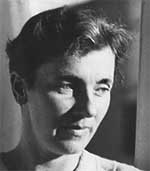
Dore Strauch was born in Berlin, Germany. She was 28 years old when, in July 1929, she left Berlin (and her husband) to migrate to the uninhabited Galápagos island of Floreana with her lover and physician, Dr. Friedrich Ritter. Ritter and Strauch called their Floreana homestead “Friedo”—a melding of their first names—and were dubbed “The Adam and Eve of Galápagos” by the world's press. In 1935, Dore published her book Satan Came to Eden in which she provided her version of the events on Floreana.
Friedrich Ritter (voiced by Thomas Kretschmann)
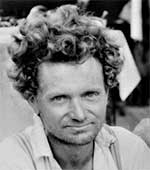
Friedrich Ritter was born in the little town of Wollbach near Germany's Black Forrest. He was a respected physician in Berlin when, in July 1929 at the age of 43, he left his flourishing practice (and his wife) behind to follow a life-long dream of renouncing civilization for life on an uninhabited island. Ritter chose to settle in Galápagos along with his lover and patient, Dore Strauch, after reading William Beebe's popular book, Galápagos World's End. A devout follower of Nietzsche, Ritter hoped to become a great, published philosopher in his own right while emulating the Nietzschean doctrine of the Superman on the island of Floreana.
John Garth (voiced by Josh Radnor)
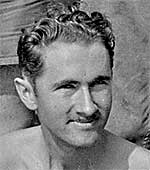
Biologist John Garth was only 21 years old when, in the winter of 1931, he boarded the research vessel Velero III for its first expedition to the then-largely uncharted Galápagos Islands. The Velero's captain was Allan Hancock, Southern California oilman, banker, philanthropist and patron of pure science. Hancock was a gifted cellist who never sailed anywhere without his own personal chamber orchestra, and he tapped Garth because, although Garth was not yet established as a scientist, he was already an extremely accomplished pianist. Nicknamed “Bugs” because of his focus on entomology, Garth was a careful journal keeper. His writing (which covers the period of the Velero III annual expeditions between 1931 and 1935) provides an observational perspective on the Floreana people and events.
Margret Wittmer (voiced by Diane Kruger)
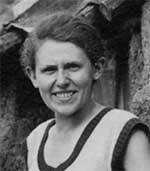
In the summer of 1931, 27-year-old Margret Wittmer left Cologne, Germany, with her husband Heinz and her 14-year-old stepson Harry. The Wittmers were middle-class Germans who sought a new life in Galápagos both as a way out of the grim economic and political realities of 1930s Germany, and as a healthful place in which they hoped Harry would recover from what was probably rheumatic heart disease. They were inspired to migrate to the islands by articles written by and about Friedrich Ritter in the German newspapers, and fancied themselves becoming “The Swiss Family Robinson of Galápagos.” The Wittmers chose Floreana in particular because Ritter was a physician and Margret, five months pregnant with her first child when they landed on the island, hoped the doctor would help her through her impending labor. In 1959, Margret wrote her version of the Floreana story in her book Floreana: A Woman's Pilgrimage to the Galápagos.
Heinz Wittmer (voiced by Sebastian Koch)
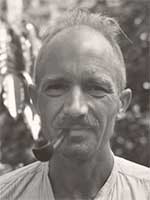
41-year-old Heinz Wittmer was working as personal secretary to Konrad Adenauer, the mayor of Cologne. Discouraged by the grim economic and political realities of 1930s Germany and concerned about the fragile health of his 14-year-old son Harry, he read a series of newspaper articles written by Friedrich Ritter. These articles inspired him deeply and he soon convinced his new wife, Margret, to leave everything behind and move permanently to Galápagos. The Wittmers landed on Floreana in August 1931 and from the beginning fancied themselves “The Swiss Family Robinson of Galápagos.”
Baroness Eloise von Wagner (voiced by Connie Nielsen)
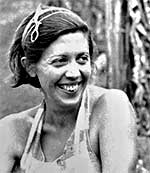
The Austrian Baroness Eloise von Wagner landed on Floreana in October 1931 along with two much younger German lovers, Robert Philippson and Rudolf Lorenz. Having read reports of the wealthy yachtsmen who visited Friedrich Ritter and Dore Strauch, the Baroness came to Galápagos determined to build a grand luxury hotel for these passing millionaires. The hotel was to have been called Hacienda Paradiso. Although it has never been proven, the Baroness claimed to be related to Franz Liszt and Richard Wagner, and also to have spent time as a spy in Constantinople during World War I. She and Lorenz owned a boutique in Paris, which they gave up in order to seek fame and fortune on Floreana. It is believed that Lorenz provided the money for their trip and that Philippson had been a salesman in the Paris boutique.
Rolf Blomberg (voiced by Gustaf Skarsgård)
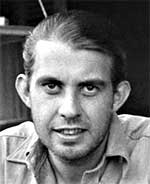
Rolf Blomberg was a 22-year-old Swedish journalist and photographer who visited Floreana, along with Norwegian fisherman Trygve Nuggerud, in the summer of 1934. Blomberg had come to the island intent on meeting the Baroness and was the first outsider to learn of her disappearance. He then became the reporter who broke the story to the international press. After World War II, Blomberg settled permanently in Ecuador and with that as his base, produced more than thirty documentaries for Swedish television. Some of his footage appears in The Galápagos Affair.
Modern Characters (in order of appearance)
Octavio Latorre
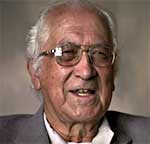
Historian Octavio Latorre lives in Quito, Ecuador and has written extensively on the human history of the Galápagos Islands. His first and most well-known book is The Curse of the Giant Tortoise: Tragedies, Mysteries and Crimes in the Galápagos Islands.
Fritz Hieber
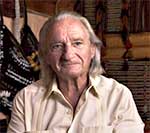
Fritz Hieber is the grand-nephew of Friedrich Ritter—his father was Ritter's nephew. He grew up in Wollbach, Germany, the childhood home of Friedrich, hearing countless stories about Ritter, Dore Strauch and the other Floreana inhabitants. Hieber now lives near Frankfurt, and like his grand-uncle, is a physician.
Jacqueline and Gil De Roy
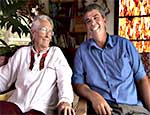
Belgian expatriate Jacqueline De Roy immigrated to Santa Cruz Island in 1955 along with her late husband Andre and their two-year-old daughter Tui. Her son Gil was born on Santa Cruz in 1958. Both of them still live on the island.
Tui De Roy
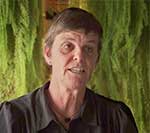
The daughter of Jacqueline and the late Andre De Roy, Tui moved to Santa Cruz Island from Belgium when she was two years old. She is a world-renowned wildlife photographer and writer whose books include Galápagos: Islands Lost in Time, Galápagos: Islands Born of Fire, The Andes: As the Condor Flies and New Zealand: A Natural History. She now makes her home in New Zealand.
Teppy Angermeyer
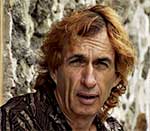
Born in Galápagos, Teppy Angermeyer is the son of Gus Angermeyer—the eldest of the four Angermeyer brothers who immigrated to Santa Cruz Island from Hamburg, Germany in 1935. Gus and his brothers Karl, Hans and Fritz all fled due to the rise of Hitler.
Steve Divine
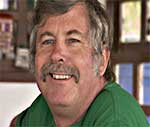
Steve's father, Bud Divine, was a rough-and-tumble rancher from Arizona who, along with his wife Doris, migrated permanently to Galápagos in 1949. Steve was born on Santa Cruz in 1952 and still lives there today.
Carmen Kubler Angermeyer
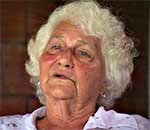
In 1934, Carmen Angermeyer was six years old when she emigrated from Spain to Santa Cruz Island with her parents Carlos and Marga Kubler. Carmen refers to herself as “a housewife in Galápagos” and married Fritz, the youngest of the Angermeyer brothers. Shortly after Carmen married Fritz, her mother Marga divorced Carlos Kubler and married Fritz's brother Karl.
Jacob Lundh
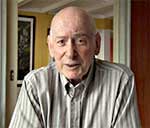
In 1932, when he was eight years old, Jacob Lundh moved to Santa Cruz Island from Oslo, Norway, with his mother and father. His father, Captain Herman Lundh, ran a cargo boat around the islands and knew all the protagonists of the Floreana mystery. Jacob even spent a weekend at Hacienda Paradiso with the Baroness and her lovers. We filmed him at his home in Oslo.
Daniel Fitter Angermeyer
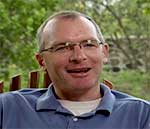
Born on Santa Cruz Island in 1970, Daniel is the third generation of Angermeyers to live in Galápagos. His mother Mary was the daughter of Hans Angermeyer, who along with his brothers Gus, Karl and Fritz, emigrated from Hamburg, Germany, in 1935.
Jorge Antonio Mahauad and Rolf Wittmer
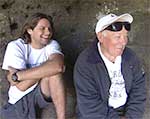
The son of Margret and Heinz Wittmer, Rolf Wittmer was born on January 1, 1933, only four months after his parents landed on Floreana. Rolf's delivery took place in one of the island's old pirate caves, which is where the Wittmers lived at the time. Jorge Antonio Mahauad is Rolf's oldest grandson. He was born in Ecuador, but now lives on Santa Cruz Island.
Floreanita Wittmer
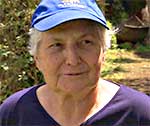
The daughter of Margret and Heinz Wittmer, Floreanita was born on Floreana in 1937. By the time of her birth, the Wittmers lived in a house and the old pirate caves were used only for storage. Floreanita still lives on Floreana and runs the family's hotel there.
Friedel Horneman
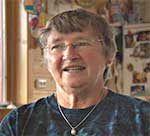
The daughter of a Norwegian father and a German mother, Friedel Horneman was born in the Santa Cruz highlands in 1940. Friedel describes her childhood in idyllic terms, but as she grew into young womanhood, she dreamt of leaving Galápagos and began looking for a way out—especially when her parents tried to marry her off to Alf Kastdalen, the son of neighboring Norwegian immigrants. Friedel now makes her home with her second husband in Kirkenes, Norway.
José Machuca
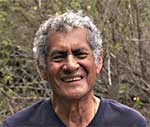
A retired ship's physician from Guayaquil, Ecuador, Dr. José Machuca moved to the island of Santa Cruz in 1993. Since then he has become known as an amateur historian and scholar of all things related to Galápagos human history.
Claudio Cruz
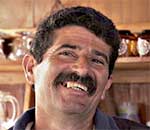
The son of Eliezer and Emma Cruz, Claudio is one of twelve Cruz children born on Floreana Island. He grew up on the property formerly known as Friedo and owned by Friedrich Ritter and Dore Strauch. In fact, Dr. Ritter's grave remains undisturbed on the Cruz property to this day.
The Filmmakers
Dan Geller & Dayna Goldfine — Producers/Directors/Writers
For over twenty years, Emmy-award winning directors/producers Dan Geller and Dayna Goldfine have jointly created critically-acclaimed, multi-character documentary narratives that braid their characters' individual personal stories to form a larger portrait of the human experience. Their most recent film, the award-winning Something Ventured (2011), premiered at SXSW (South by Southwest Music Conference), went on to play at festivals internationally, and was broadcast nationwide on PBS. Geller and Goldfine's work also includes:
- Ballets Russes (2005, recognized as one of the top five documentaries of 2005 by both the National Society of Film Critics and the National Board of Review and appeared on a dozen critical “10 Best Films” lists, including those of Time Magazine, the Los Angeles Times, The Hollywood Reporter, the San Francisco Chronicle and Slate.
- Now and Then: From Frosh to Seniors, which premiered theatrically in October 1999 and aired on PBS in October 2000 as the lead program of the Independent Lens series;
- Kids of Survival: The Art and Life of Tim Rollins + K.O.S. (1996), a feature-length documentary about the South Bronx-based art group Tim Rollins & K.O.S., which aired on Cinemax in September 1998 and was the recipient of two national Emmy Awards
- Frosh: Nine Months in a Freshman Dorm (1994),
- the award-winning Isadora Duncan: Movement from the Soul (1988).
Bill Weber — Editor
Bill Weber cut his editing teeth with a broadcast Emmy, an MTV Music Video of the Year Award and a successful career in commercial work. He soon discovered his love for documentaries by editing and co-directing The Cockettes (2002), which premiered at Sundance and Berlin and won the LA Film Critics Documentary of the Year award. Most recently Weber edited and co-directed We Were Here: The AIDS Years in San Francisco (2011), which also opened at Sundance and Berlin, screened theatrically and aired on PBS' Independent Lens. Other work includes the Academy Award-nominated documentary, The Final Inch (2009), the Emmy nominated films Last Letter Home (2004) and Alzheimer's Caregivers (2009) for HBO, the Telluride premiering documentary feature Hats Off (2008), and numerous specials for HBO and The History Channel.
Laura Karpman — Composer
Four-time Emmy award-winning Laura Karpman has been named one of the most important women in Hollywood by Variety. In addition to creating and recording the original score for Geller and Goldfine's documentary Something Ventured (2011), Karpman's credits include:
- the miniseries Taken (2002); executive producer Steven Spielberg,
- Odyssey 5 (2002-2003) for Showtime,
- Masters of Science Fiction (2007) for ABC,
- Craft in America (2007-2012) for PBS,
- Man in the Chair starring Christopher Plummer (2007),
- The Annihalation of Fish, starring Lynn Redgrave and James Earl Jones (1999),
- The Tournament (2009) for The Weinstein Company.
Equally at home in the concert hall, Karpman has received commissions from The Cabrillo Festival Orchestra, The Juilliard School, The Czech National Symphony Orchestra, among others. Her multimedia opera Ask Your Mama (2009), commissioned by Carnegie Hall and written for Jessye Norman, The Roots, Nnenna Freelon and d'Adre Aziza, from a text by Langston Hughes, premiered to critical acclaim.
Jonathan Dana — Executive Producer
A pioneer in the independent film business since 1971, Jonathan Dana served as President of Motion Pictures and Television at Atlantic Releasing Corporation and as President and CEO of Triton Pictures, supervising such films as A World Apart (1988), Stormy Monday (1988), Teen Wolf (1985), Patty Hearst (1988) and Hearts of Darkness: A Filmmaker's Apocalypse (1991). Dana has also served in a production capacity on over 26 fiction and non-fiction films, including Standing in the Shadows of Motown (2002), The Spitfire Grill(1996), Tom Down and the Language of Music (2003), You Kill Me(2007) and Kill the Irishman (2011), and directed the ground-breaking documentary Sandstone (1975). His recent credits as producer's representative include the 2012 Spirit Award nominee We Were Here and 2013 Oscar nominee The Invisible War. Dana was an initial investor and supervised the launch of indie film community withoutabox.com, now an operating division of IMDB (Internet Movie Database). This is his third collaboration with Geller Goldfine, having served as consulting producer and producer's representative on Ballets Russes (2005), and as production consultant on Something Ventured (2011).
Roy Waldspurger — Sound Designer/Mixer
Roy Waldspurger has been a sound editor, designer and mixer for nearly 20 years. His most recent credits include Sophia Coppola's The Blign Ring (2013), Somewhere (2010) and Marie Antoinette (2006), David Mamet/HBO's Phil Spector (2013), and Curtis Hanson's Too Big to Fail (2011).
Margery Simkin — Casting Director
Over the past thirty years, Margery Simkin has cast films for major directors such as Guillermo del Toro, James Cameron, Steven Soderbergh and Terry Gilliam. Among many others, her credits include: Beautiful Creatures (2013), Avatar (2009), Twelve Monkeys (1995), Marley and Me (2008), Erin Brokovich(2000), Freedom Writers (2007), Field of Dreams (1989), Top Gun (1986), and most recently, Pacific Rim (2013).
Celeste Schaefer Snyder — Producer/Writer
Celeste Schaefer Snyder also co-produced and co-wrote Ballets Russes (2005) and Something Ventured (2011).
The Actors
Cate Blanchett (Dore Strauch)
The Australian actress received rave reviews for her performance in Woody Allen's Blue Jasmine. Other accolades include a star on the Hollywood Walk of Fame, two Screen Actors Guild Awards, two Golden Globe Awards, two BAFTAs (British Academy of Film and Television Arts) and an Academy Award. She came to international attention for her role as Elizabeth I of England in the 1998 film Elizabeth, for which she won BAFTA and Golden Globe awards, and earned her first Academy Award nomination for Best Actress. Blanchett appeared as the elf lady Galadriel in Peter Jackson's The Lord of the Rings trilogy from 2001 to 2003. In 2004, Blanchett's portrayal of Katharine Hepburn in Martin Scorsese's The Aviator brought her numerous awards, including an Academy Award for Best Supporting Actress.
Blanchett's other films include Babel (2006),Notes on a Scandal (2006), Indiana Jones and the Kingdom of the Crystal Skull (2008), and The Curious Case of Benjamin Button (2008). Blanchett collaborated with director Peter Jackson again for The Hobbitt (2012-14). She will star in George Clooney's upcoming The Monuments Men.
Sebastian Koch (Heinz Wittmer)
On stage, television, and the big screen, Sebastian Koch is undeniably one of Germany's most multi-faceted and successful actors. He starred in the Academy Award-winning The Lives of Others (2006), for which he received the Globo d'Oro for Best European Actor from the Italian Foreign Press. Koch also starred in Paul Verhoeven's Black Book (2006), which premiered in Venice and Toronto and was The Netherlands' Oscar submission for the Best Foreign Language Film. Most recently he appeared in A Good Day to Die Hard (2013), and is starring in the upcoming Showtime production The Vatican, directed by Ridley Scott.
Thomas Kretschmann (Friedrich Ritter)
Kretschmann is a German actor best known for his performances in Academy Award-winning The Pianist (2002), Downfall (2004) and King Kong (2005). His prior voice work includes the voice of Professor Z in Cars 2 (2011). Kretschmann's many other credits include major roles in TransSiberian (2008), Sea Wolf(2008) and Valkyrie (2008). Currently he is co-starring as Van Helsing in NBC's DRACULA, which debuted in October, 2013.
Diane Kruger (Margret Wittmer)
Kruger is a German actress best known for her role as Bridget von Hammersmark in the Academy Award-nominated Inglourious Basterds (2009) and her performances of Marie Antoinette in Farewell, My Queen (2012) and Helen in Troy (2004). She also starred in Joyeaux Noel (2005), which received a Best Foreign Language Oscar nomination, and played leading roles in Unknown(2011), Mr. Nobody(2009) and National Treasure(2007). Currently, Ms. Kruger stars as Detective Sonya Cross in FX Channel's The Bridge.
Connie Nielsen (Baroness Eloise von Wagner)
Danish actress Connie Nielsen is best known for her portrayal of Princess Lucilla, opposite Russell Crowe's Maximus in Ridley Scott's Gladiator (2000). Nielsen's many other leading roles include: The Hunted(2003), Brothers(2004), Return to Sender(2004), The Ice Harvest (2005), and Lost in Africa(2010). Most recently she starred as Meredith Kane alongside Kelsey Grammer in Boss (STARZ/Lionsgate Television).
Josh Radnor (John Garth)
Radnor is an American actor who made his writing and directorial debut with the 2010 comedy-drama film HappyThankYouMorePlease, in which he also starred and for which he won the Sundance Film Festival Audience Award. His second film, Liberal Arts(2012), which he again wrote, directed and starred in, also premiered at Sundance. Radnor has co-starred as Ted Mosby in CBS's smash hit How I Met Your Mother since 2005.
Gustaf Skarsgård (Rolf Blomberg)
Named one of European Film's “Shooting Stars” in 2007, Skarsgård is a member of the renowned Swedish Skarsgård acting family, which includes his father Stellan, and his brothers Alexander and Bill. His most recent credits include leading roles in Kon-Tiki(2012), Happy End(2011) and Trust Me (2010). Skarsgård is currently co-starring in The History Channel's Vikings.
The Galápagos Affair: Satan Came to Eden
Based on the books, journals, articles and letters of Dore Strauch, Margret Wittmer, Friedrich Ritter, Heinz Wittmer and John Garth
| Production Team | |
| Director | Dayna Goldfine & Dan Geller |
| Producers & Writers | Dan Geller, Dayna Goldfine & Celeste Schaefer Snyder |
| Executive Producer | Jonathan Dana |
| Associate Producer | William McComas |
| Editor | Bill Weber |
| Cinematographer | Dan Geller |
| Location Sound | Dayna Goldfine |
| Original Music | Laura Karpman |
| Casting | Margery Simkin |
| Featuring Performances By: | |
| Cate Blanchett | as Dore Strauch |
| Sebastian Koch | as Heinz Wittmer |
| Thomas Kretschmann | as Friedrich Ritter |
| Diane Kruger | as Margret Wittmer |
| Connie Nielsen | as Baroness Eloise von Wagner |
| Josh Radnor | as John Garth |
| Gustaf Skarsgård | as Rolf Blomberg |